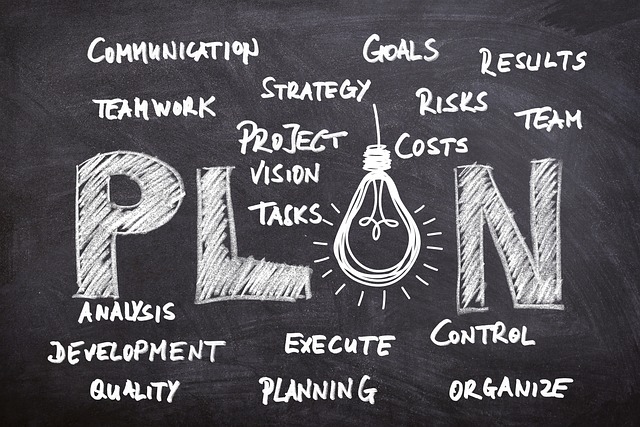The Rising Tide of Emotional Intelligence
In recent years, emotional intelligence (EI) has emerged as a critical factor in achieving personal success. This concept extends far beyond mere academic prowess or technical skill. Emotional intelligence encompasses the ability to understand one’s emotions, manage them effectively, and empathize with others. To put it simply, it’s about being smart with feelings. This skill is particularly crucial in today’s interconnected world where collaboration and interpersonal relationships drive success in both personal and professional settings. In fact, numerous studies suggest that emotional intelligence can be just as important, if not more so than traditional intelligence (IQ), when it comes to achieving personal success.
So why is developing emotional intelligence so vital? First, it fosters self-awareness, which is the cornerstone of emotional intelligence. Self-awareness entails recognizing your emotions as they arise and understanding how they influence your thoughts and behavior. Imagine being in a high-pressure meeting where the stakes are high. If you can identify feelings of anxiety or frustration bubbling up, you can take steps to manage those emotions rather than allowing them to dictate your actions. This self-awareness creates a ripple effect, guiding you towards making informed decisions. As you navigate your emotional landscape, you’ll find yourself equipped to respond thoughtfully rather than react impulsively.
Cultivating Self-Regulation
Once you’ve established a foundation of self-awareness, the next step involves cultivating self-regulation. This aspect of emotional intelligence refers to the ability to control your emotions and impulses and to stay calm in stressful situations. Think of it as training your mind to respond rather than react. Developing self-regulation means practicing techniques that allow you to pause and reflect before letting your emotions spill over. Techniques such as mindfulness and deep breathing exercises can significantly aid this process. Researchers have found that individuals with strong self-regulation are often more effective leaders, better team players, and ultimately more successful in their personal and professional lives.
Moreover, self-regulation paves the way for resilience, which is the ability to bounce back from setbacks and adapt to changing circumstances. Life is riddled with challenges and obstacles, and those who have developed robust emotional intelligence can navigate these hurdles with grace. Resilience doesn’t mean you won’t feel challenged or disheartened when faced with adversity. Instead, it means you will acknowledge those feelings without letting them overpower you. This capability allows you to maintain focus and persistence, two key ingredients for long-term personal success.
The Power of Empathy
Empathy, a significant component of emotional intelligence, refers to the ability to understand and share the feelings of others. In today’s diverse workplace, possessing strong empathetic skills is invaluable. When you cultivate empathy, you not only improve your communication and interpersonal relationships but also create an inclusive environment that fosters collaboration and innovation. Empathetic individuals can connect with their colleagues’ experiences, paving the way for compassion and support. This environment can enhance teamwork, leading to higher productivity and overall success.
Additionally, empathy allows you to navigate social complexities with ease. Consider the idea of leading a team. An emotionally intelligent leader who practices empathy will recognize when team members are struggling. Rather than pushing for results at all costs, this leader might choose to check-in, provide support, or adjust expectations. Such considerations foster a positive work culture where employees feel valued and understood. This means that developing emotional intelligence doesn’t just enhance your ability to navigate your feelings; it equips you to build meaningful connections with others, promoting a sense of belonging and community.
Effective Communication and Social Skills
Another fundamental aspect of emotional intelligence is effective communication. Those who are emotionally intelligent possess strong social skills, allowing them to express themselves clearly while also being sensitive to the feelings of others. Communication is not merely about exchanging words; it’s about conveying emotions, intentions, and understanding. In conversations, it’s essential to be present and engaged. Recognizing non-verbal cues, such as body language and facial expressions, is equally vital.
A person with well-developed emotional intelligence navigates conversations with a sense of awareness and respect. They listen actively, ensuring that the other party feels heard and validated. This capability enhances negotiations, conflict resolution, and relationship-building. Moreover, strong communication skills can facilitate collaborations across diverse teams, ultimately contributing to success in a myriad of environments. By honing your communication abilities—tailoring your style to different situations and understanding others’ perspectives—you can foster deeper connections and drive more productive interactions.
Building Stronger Relationships
Developing emotional intelligence naturally cultivates stronger relationships, both personally and professionally. In intimate relationships, emotional intelligence breeds trust, intimacy, and understanding. These qualities are essential for a healthy, loving partnership. For example, couples who communicate effectively and emotionally are often more resilient in the face of challenges. They manage conflict with empathy and understanding, which prevents the escalation of issues. This dynamic creates a secure emotional bond, making it easier for both partners to navigate life’s ups and downs together.
In a professional context, strong relationships can lead to enhanced collaboration and teamwork. When colleagues genuinely understand and respect each other’s emotions, they can create a harmonious work environment. This harmony often translates to improved job satisfaction and employee retention. Teams that operate from a place of emotional understanding are often more innovative because individuals feel safe to share ideas. They thrive in an environment that emphasizes respect and collaboration, leading to outstanding results. Therefore, investing in emotional intelligence is a personal and professional imperative that pays dividends in the form of meaningful relationships.
The Role of Emotional Intelligence in Leadership
Leadership styles are undergoing a transformation that places emotional intelligence at the forefront. Modern leaders must embody empathy, self-regulation, and effective communication to inspire their teams and adapt to evolving challenges. Emotional intelligence empowers leaders to create visions that resonate with their teams, motivating them to work toward common goals. They can connect with their employees on a human level, recognizing that everyone has unique perspectives and talents. This connection fosters loyalty and dedication, which are essential for a thriving organizational culture.
Moreover, leaders who prioritize emotional intelligence can navigate workplace conflicts with greater ease. When disagreements arise, emotionally intelligent leaders approach resolution with a calm, empathetic demeanor. They listen actively and encourage open dialogue, allowing all voices to be heard. This approach not only resolves conflicts more effectively but also builds a foundation of trust within the team. Employees feel psychologically safe in expressing their views, which promotes creative thinking and innovative solutions. Consequently, developing emotional intelligence is non-negotiable for those aspiring to leadership positions in today’s dynamic workplace.
The Path to Self-Improvement
Developing emotional intelligence is a continuous journey of self-improvement. It calls for reflection, practice, and a willingness to learn from experiences. To begin, engage in self-assessment. Reflect on your emotional responses in various situations—what triggers you? How do you typically react? Identifying these patterns is the first step toward growth. Next, consider seeking feedback from trusted friends or colleagues. They can offer valuable insights into your emotional behaviors and relationships.
Setting aside time for mindfulness practices can also significantly enhance your emotional intelligence. Mindfulness promotes self-awareness and self-regulation by training you to remain present and grounded, particularly during stressful moments. Additionally, reading widely about emotional intelligence can provide you with new perspectives and techniques for development. Numerous resources, from books to online courses, delve into techniques for enhancing emotional intelligence in various settings.
Integrating Emotional Intelligence into Daily Life
Integrating emotional intelligence into your daily life doesn’t have to be daunting. Start by practicing empathy daily. When conversing with friends or colleagues, make a conscious effort to understand their emotions and perspectives. Ask questions that invite deeper discussions about feelings—this practice can strengthen your relational skills. Next, commit to active listening. Instead of preparing your response while others speak, fully engage with their words and emotions. By doing this, you reflect a genuine interest in their experiences.
Moreover, embrace vulnerability by sharing your feelings with trusted individuals. This practice encourages emotional openness and reinforces bonds with others. Remember that emotional intelligence thrives in environments of safety and understanding. By fostering emotional connections and promoting open dialogue, you create opportunities for deeper understanding and collaboration in your relationships.
Maintaining Progress Over Time
Maintaining and deepening your emotional intelligence over time is essential for continued personal success and growth. Emotional intelligence is not a fixed trait; it evolves as you engage with new experiences and challenges. Regular practice is key. Set aside time for self-reflection to evaluate your growth journey. Celebrate your successes—no matter how small—and identify areas for improvement. Journaling can be a powerful tool during this process, allowing you to track your emotional reactions and progress over time.
Additionally, surround yourself with individuals who demonstrate high emotional intelligence. Engaging with people who prioritize emotional awareness and understanding can inspire your own growth. Join groups or organizations that foster personal development through self-improvement workshops or emotional intelligence training. Immersing yourself in such environments reinforces your commitment to developing emotional intelligence, ultimately leading to a richer, more fulfilling life.
FAQ
- What is emotional intelligence?
- Emotional intelligence (EI) refers to the ability to understand and manage one’s emotions as well as the emotions of others. It consists of self-awareness, self-regulation, empathy, and social skills.
- Why is it important for personal success?
- Emotional intelligence plays a crucial role in personal success by enhancing communication, improving relationships, fostering resilience, and promoting effective leadership. It helps individuals navigate emotional challenges and build connections with others.
- How can I develop my emotional intelligence?
- You can develop emotional intelligence by practicing self-reflection, seeking feedback from others, engaging in mindfulness activities, and actively learning about emotions. Regularly assess your emotional responses and develop empathy toward others.
- What are the benefits of emotional intelligence in the workplace?
- In the workplace, emotional intelligence enhances teamwork, improves communication, boosts morale, and facilitates conflict resolution. Emotionally intelligent employees are often more adaptable and contribute positively to team dynamics.
- Can emotional intelligence be improved over time?
- Yes! Emotional intelligence is a skill that can be developed and improved over time with conscious effort and practice. Engaging in self-improvement activities, learning from experiences, and seeking feedback are essential for growth in this area.



